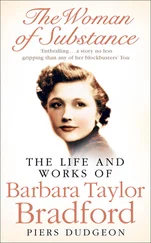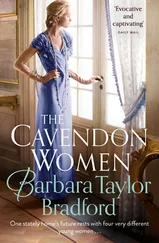And then with calculation and consummate feminine wiles, she had set out to inveigle Joe Lowther into marriage. Already in love with her, overwhelmed by her beauty and impressed with her industriousness and business acumen, Joe had been an easy and willing target. As their friendship had developed he had grown bolder in his courtship. Receiving no rebuff, he had nervously proposed one month later and had been overjoyed when she accepted him, not recognizing that it was he who had been courted and manoeuvred.
The night he had proposed and after she had accepted him, Emma had told Joe that Edwina was illegitimate. She had done so with absolute candour, at the same time sagaciously omitting the identity of the father. She had simply repeated the story she had invented for Blackie O’Neill years before. Joe, impressed with her honesty, had been admiring of her stoicism at carrying such a burden alone. He had told her that her past did not interest him, and it truly did not. He was so besotted with Emma the only thing that mattered was her acceptance of him for a husband.
Emma, who had not wanted to start their marriage with deception about her circumstances or her child, was, nevertheless, aware that she had no choice but to tell Joe the truth. Joe believed she was the widow of a sailor called Winston Harte. How then could she conceivably explain her brother to him-also a sailor with the same name as her deceased nonexistent husband? For this reason, she had confided those same half-truths to Laura, and eventually to David, some weeks after her marriage. Neither one had appeared to be shocked and they accepted her explanation with understanding.
Emma’s worst moment had been her confrontation with Winston and Frank, for it was also necessary to explain to her brothers the existence of a three-year-old daughter, who was obviously not Joe’s offspring. Frank, still in awe of Emma, had not dared to offer one word of criticism. Winston, on the other hand, had placed Emma on a pedestal, and he had flown into a rage, disappointed in her and full of recriminations. After he had calmed down, he managed to convince himself she had been duped and unwilling, so that he could absolve Emma of all blame and keep her image untarnished. He had cursed the scoundrel who had violated his innocent sister in naval-barracks language so colourful both Emma and Joe had been flabbergasted.
Conscious of her brothers’ intelligence and perception, Emma had coloured her story for their benefit, inventing a nebulous gentleman of doubtful background as the father of her child, whom she said she had met in Leeds. She had alerted Joe in advance, saying that she dare not tell them a boy from Fairley had taken advantage of her. There would be reprisals in the village if she did so. Joe had agreed there was sense in this and was her ally. For her part, Emma was relieved that she no longer had to fabricate stories about her past, for by nature she was not a liar.
Yes, Joe has been decent, Emma said to herself. He had insisted on adopting Edwina after their marriage and he had given her his name. And he loved Edwina as much as he loved his own child, if not more, Emma sometimes suspected.
As these wandering thoughts sifted through Emma’s head she felt an unprecedented stab of guilt about her anger with Joe. He had behaved like a gentleman and had shown a degree of generosity towards her, and Emma reproached herself. The gift of her body and wifely devotion was a small price to pay when she considered everything dispassionately.
It would not be easy, Emma knew, when she thought of his wanton lust in the privacy of their bedroom. But she took hold of herself with cold determination, and resolved to be more understanding and warmly attentive to her husband in the future.
The following morning found Emma at her desk in her department store earlier than usual. Elegantly dressed in a severely tailored black silk dress and pearls-‘the Harte uniform’, Joe called it-she sat studying two fat ledgers. Her deep absorption in those minute black figures running in punctilious columns down the wide pages was so complete she was only dimly aware of the store coming to life and of the sounds of traffic outside.
Emma’s attention was riveted on the books for the department store, which she had bought in the latter part of 1912, renovated and modernized with Blackie O’Neill’s assistance, and opened with fanfare in January of 1913.
The store had been an instantaneous success. Brilliant advertising, personally conceived by Emma, attracted the public to its doors. They came in droves to scrutinize and criticize this lavish and exotic emporium that had flowered within the hallowed precincts of Lister’s, formerly the most conservative of stores, which had been taken over by some parvenu, an ambitious young woman with newfangled ideas. To their incredulity they were captivated by the glamorous ambiance and the air of exclusivity that pervaded every floor. Lulled into a state of euphoria by the elegant interiors with their glittering mirrors, plush carpeting, harmonious lighting effects, and the specially perfumed air, they remained to browse, to exclaim and admire, and were inevitably induced into buying, unaware that they had been cajoled by the tasteful and tranquil surroundings into spending money through a psychological approach far ahead of its time.
Emma’s skilful displays of all her products attracted marvelling eyes to its quality, its stylishness, and the reasonable prices. The merchandise was the dernier cri, so elegant that the ladies of Leeds and other nearby towns found themselves unable to resist temptation, dipping into their purses with enthusiasm, under the gentle encouragement of the charming and pleasant-mannered salesgirls, rigorously trained by Emma in what she termed ‘the art of the understated sell’, and which in later years she was to call ‘the soft sell’.
Another contributory factor to the store’s popularity was the cafe Emma had opened on the second floor. She had decorated it in the style of an English country garden, utilizing pastoral scenic wallpaper, white-painted trellises, artificial topiary, and birdcages housing exquisitely rendered copies of colourful birds. She named it the Elizabethan Gazebo and dressed the waitresses in simple pale green uniforms, frilled white organdy aprons and caps. The enchanting setting, a refreshing change from the overblown pomposity of Victorian décor, the serene atmosphere, superior service, and the simple but tasty dishes made the Elizabethan Gazebo all the rage. It became the chic gathering place for morning coffee, light luncheons, and afternoon tea. Smart women took to rendezvousing there and few left the store without making some kind of purchase, just as Emma had shrewdly anticipated. This innovation, a wholly unique departure for a department store, immediately started a trend in Leeds. It prompted her envious competitors to follow suit, but their rococo imitations were tasteless in comparison, and her stylish café was so well established its business was unaffected.
The gift wrapping of merchandise was another idea dreamed up by Emma, who remembered her own excitement at receiving that brightly wrapped gift from Blackie on her fifteenth birthday. This small service was not performed by other local stores and it gave her yet another sales advantage. With her unerring understanding of the public, Emma was convinced this token gesture, costing relatively little in time, effort, and money, would delight her customers, especially since she made no charge for it, and she was proven right. A gift wrapped in silver paper, tied with silver ribbon, and decorated with a tiny spray of silk violets became the cachet of Harte’s. So did the courtesy and helpfulness of the doorman who assisted with packages, opened carriage and motorcar doors, and performed other gallant little duties, and in his splendid gold-braided uniform of deep royal blue he added a touch of distinction to the main entrance. Finally, in an effort to persuade her customers to buy everything they needed from Harte’s, and in greater quantity, Emma offered door-to-door delivery of goods three times a week. Her customers came to rely on this service, and it boosted sales to such a staggering extent she had to revise her timetable and send out her royal-blue vans five and sometimes even six days a week to fulfil the orders.
Читать дальше
Конец ознакомительного отрывка
Купить книгу












